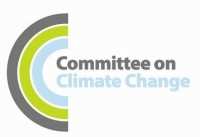Thu, Dec 10, 2009
Move Considered To Curb Airline Demand
 As if higher fares, check baggage
fees, packed airplanes, and ever-eroding service weren't doing
enough to curb airline demand on their own, the British chairman of
the Government's Committee on Climate Change has floated an idea
that frequent flyers in the UK should be charged higher taxes than
those who fly occasionally. Lord Adair Turner, the Committee Chair,
unveiled the idea as one of several suggestions for restricting the
growth of airline demand to no more than 60 percent over the next
40 years.
As if higher fares, check baggage
fees, packed airplanes, and ever-eroding service weren't doing
enough to curb airline demand on their own, the British chairman of
the Government's Committee on Climate Change has floated an idea
that frequent flyers in the UK should be charged higher taxes than
those who fly occasionally. Lord Adair Turner, the Committee Chair,
unveiled the idea as one of several suggestions for restricting the
growth of airline demand to no more than 60 percent over the next
40 years.
As the Climate Summit in Copenhagen continues, the UK is looking
at ways to be sure that carbon emission produced by aircraft is no
more in 2050 than it was in 2005, according to "The Telegraph."
Along with a possible Frequent Flyer Tax, airlines could face an
additional carbon tax for the fossil fuel they burn.
 According to a study released by the Climate Change Committee,
a Briton making just under $100,000 per year will fly an average of
four times per year, while a person earning a little over $30,000
will fly just twice. "If you leave it entirely to a price regime,
then people will be able to fly if they can afford it," Lord Turner
(pictured) said. "We will have to see what our policy
responses are and to examine whether we could increase the marginal
cost of flying beyond two to three flights a year. I think there is
a whole range of ideas people have floated. Could you have a tax
which allows you to have a certain number of flights?"
According to a study released by the Climate Change Committee,
a Briton making just under $100,000 per year will fly an average of
four times per year, while a person earning a little over $30,000
will fly just twice. "If you leave it entirely to a price regime,
then people will be able to fly if they can afford it," Lord Turner
(pictured) said. "We will have to see what our policy
responses are and to examine whether we could increase the marginal
cost of flying beyond two to three flights a year. I think there is
a whole range of ideas people have floated. Could you have a tax
which allows you to have a certain number of flights?"
The idea was slammed by Simon Evans, chief executive of the Air
Transport Users Council. "I accept that there has to be a mature
debate about mitigating our carbon footprint, but aviation should
not be singled out," he told "The Telegraph." "People fly for a
wide range of reasons and this would not only discriminate against
people on low incomes but also would mean that people who have to
fly for work would face higher charges because they have used up
their allowance."
The aviation industry said new taxes were not the answer for
curbing carbon emission. The industry contends that better air
traffic management (NextGen and its European SESAR counterpart),
more efficient airplanes, and alternative fuels will do the job
without adding taxes and fees.
More News
Pilot Applied Full Aft Stick And Nose-Up Trim, But The Airplane Remained On The Runway Analysis: The pilot reported that a preflight inspection and flight control checks revealed n>[...]
A Few Questions AND Answers To Help You Get MORE Out of ANN! 1) I forgot my password. How do I find it? 1) Easy... click here and give us your e-mail address--we'll send it to you >[...]
From 2022 (YouTube Edition): Before They’re All Gone... Humankind has been messing about in airplanes for almost 120-years. In that time, thousands of aircraft representing i>[...]
Advanced Air Mobility (AAM) A transportation system that transports people and property by air between two points in the NAS using aircraft with advanced technologies, including el>[...]
Aero Linx: MQ-1B Predator The MQ-1B Predator is an armed, multi-mission, medium-altitude, long-endurance remotely piloted aircraft that is employed primarily as an intelligence-col>[...]
 NTSB Final Report: Douglas A-4K
NTSB Final Report: Douglas A-4K ANN FAQ: Q&A 101
ANN FAQ: Q&A 101 Classic Aero-TV: PBY Catalina--From Wartime to Double Sunrise to the Long Sunset
Classic Aero-TV: PBY Catalina--From Wartime to Double Sunrise to the Long Sunset ANN's Daily Aero-Term (07.01.25): Advanced Air Mobility (AAM)
ANN's Daily Aero-Term (07.01.25): Advanced Air Mobility (AAM) ANN's Daily Aero-Linx (07.01.25)
ANN's Daily Aero-Linx (07.01.25)




